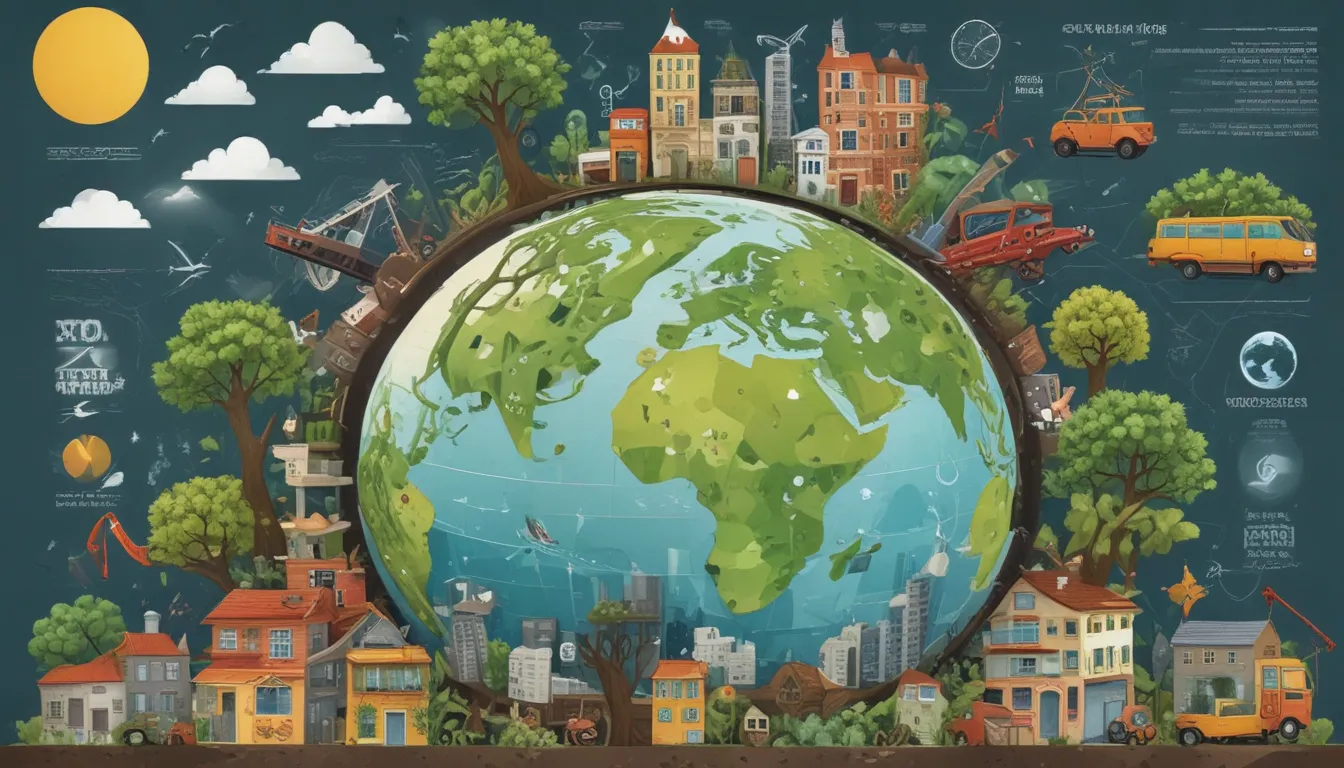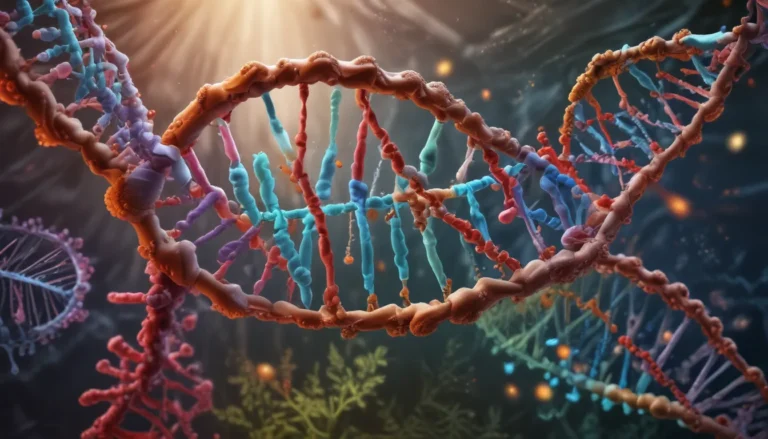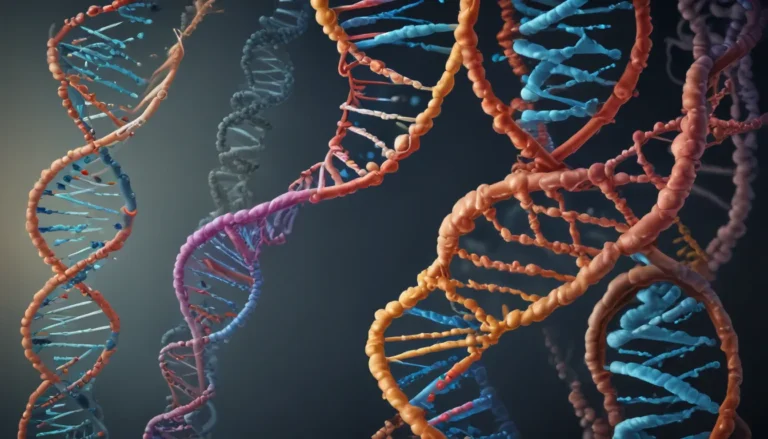A Note About Images: The images used in our articles are for illustration purposes only and may not exactly match the content. They are meant to engage readers, but the text should be relied upon for accurate information.
In our rapidly evolving world, the concept of sustainable development has emerged as a vital framework for balancing economic growth with environmental preservation and social well-being. As we navigate through the complexities of climate change, poverty, and inequality, it is imperative that we embrace innovative solutions to ensure a sustainable future for all. Join us on a journey as we uncover 10 extraordinary facts about sustainable development, shedding light on the progress achieved and the challenges that lie ahead. From renewable energy solutions to sustainable agriculture practices, these facts showcase the pivotal role of sustainable development in creating a brighter tomorrow for generations to come.
Key Insights on Sustainable Development
- Sustainable development strives to harmonize economic growth with environmental protection, ensuring a prosperous future while nurturing our planet.
- It is a collective effort that requires collaboration among governments, businesses, and individuals to pave the way for a sustainable and resilient world.
The Birth of Sustainable Development
In 1987, the term “sustainable development” was first coined by the World Commission on Environment and Development in their influential report “Our Common Future.” This groundbreaking report emphasized the significance of sustainable development in addressing pressing issues such as poverty, inequality, and environmental degradation.
The Global Framework: Sustainable Development Goals (SDGs)
The United Nations introduced the Sustainable Development Goals (SDGs) in 2015 as a universal roadmap to eradicate poverty, safeguard the environment, and ensure peace and prosperity for all. Encompassing areas such as poverty alleviation, healthcare, education, clean energy, and responsible consumption, the SDGs serve as a comprehensive guide for sustainable development initiatives worldwide.
Sustainability from a Holistic Perspective
Unlike traditional development approaches, sustainable development takes a holistic view by considering the interconnectedness of social, economic, and environmental factors. Recognizing the interplay between these elements is vital for long-term prosperity and well-being.
Embracing Renewable Energy
Renewable energy sources like solar, wind, and hydropower play a pivotal role in sustainable development by reducing greenhouse gas emissions, fostering job creation, and promoting energy independence. Transitioning to clean energy is a crucial step towards a sustainable future.
Building Sustainable Communities
The development of sustainable cities and communities is essential for addressing challenges posed by rapid urbanization. By prioritizing efficient public transportation, affordable housing, renewable energy adoption, green spaces, and community engagement, we can create thriving and sustainable urban landscapes.
Preserving Biodiversity through Sustainable Agriculture
Adopting sustainable agricultural practices such as organic farming, agroforestry, and precision farming not only ensures food security but also safeguards soil quality, minimizes water pollution, and preserves biodiversity. Sustainable agriculture is a cornerstone of sustainable development.
The Power of Collaboration in Sustainable Development
Collaboration among governments, businesses, academia, NGOs, and local communities is imperative for achieving sustainable development goals. By fostering partnerships and collective action, we can tackle complex challenges and implement sustainable solutions effectively.
Education and Gender Equality: Catalysts for Sustainable Development
Investing in education and promoting gender equality are fundamental pillars of sustainable development. By providing access to quality education for all and empowering individuals, we can drive innovation and create a knowledgeable society capable of effecting meaningful change.
Continual Adaptation and Innovation in Sustainable Development
Sustainable development is a dynamic and ongoing process that necessitates continual adaptation and innovation. As new challenges and opportunities emerge, embracing new technologies, policies, and practices is essential to ensure a prosperous and resilient future.
Charting a Sustainable Path Forward
In conclusion, sustainable development is key to sculpting a better future for our planet, encompassing economic, social, and environmental dimensions to enhance the well-being of present and future generations. Through conscious efforts in renewable energy adoption, responsible consumption, and community engagement, we can collectively contribute to a sustainable and resilient world for generations to come.
FAQs: Navigating Sustainable Development
-
What is sustainable development?
Sustainable development is an approach that seeks to meet the needs of the present generation without compromising the ability of future generations to meet their own needs. It involves balancing economic growth, social well-being, and environmental protection. -
Why is sustainable development important?
Sustainable development is crucial as it allows us to meet current needs without depleting natural resources or harming the environment. It promotes long-term economic growth, improves living standards, conserves biodiversity, and mitigates climate change. -
How can individuals contribute to sustainable development?
Individuals can contribute to sustainable development by making conscious choices in their daily lives, such as reducing energy consumption, supporting sustainable businesses, and advocating for sustainable practices. -
Is sustainable development only applicable to developing countries?
No, sustainable development is applicable to all countries, emphasizing the importance of balancing economic growth with social and environmental considerations on a global scale. -
What are some examples of sustainable development initiatives?
Sustainable development initiatives include investing in renewable energy, promoting sustainable agriculture practices, conserving natural habitats, and supporting education and healthcare initiatives in underserved communities.
Partnering for a Sustainable Future
Our dedication to providing reliable and engaging content ensures that each fact shared is a valuable contribution from individuals like you. With a commitment to accuracy and authenticity, our editors rigorously review every submission to maintain the highest standards of quality. Explore the world of sustainable development and join us in our quest to create a sustainable and flourishing future for all.






